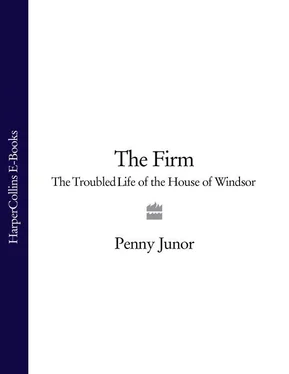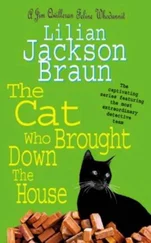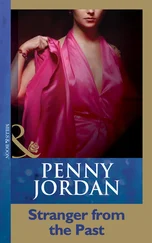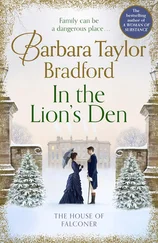When Charles first started looking upon Diana as a possible candidate for marriage he talked to Camilla about her; he asked all his close friends what they thought of Diana, and Camilla was one of those who tried to befriend her and welcome her to the group. She invited Charles and Diana to spend weekends at her house. There was nothing sinister in any of this. The fact that Camilla knew Charles was going to propose and hence wrote a friendly note to Diana to await her arrival at Clarence House on the day it was announced wasn’t sinister either. Look at almost any episode of the American TV sitcom Friends : soliciting friends’ approval of the latest girl/boyfriend is par for the course. But the Princess took it as proof that something was still going on between them, and read into Camilla’s friendly invitation to lunch the latter’s desire to find out whether she was going to hunt when she moved to Highgrove, and therefore whether she would be in the way of their plans to meet.
There were no meetings, and virtually no contact until several years into the marriage, and certainly no sex, as the Prince so painfully and honestly explained, until the marriage had irretrievably broken down. And by that time he was close to irretrievably breaking down, too. Towards the end of 1986 he started making contact with friends once again, those he had shut out of his life at Diana’s request some years before. As he wrote to one of them:
Frequently I feel nowadays that I’m in a kind of cage, pacing up and down in it and longing to be free. How awful incompatibility is, and how dreadfully destructive it can be for the players in this extraordinary drama. It has all the ingredients of a Greek tragedy … I fear I’m going to need a bit of help every now and then for which I feel rather ashamed.
He was in such a chronic state of depression by then that they feared for his sanity, and it was Patty Palmer-Tomkinson who engineered a reunion with Camilla, knowing how much she had meant to him in the past. Camilla herself was not particularly happy; she and Andrew Parker Bowles were the best of friends but their marriage was an empty shell with Andrew in London escorting pretty girls all week and Camilla minding the home, dogs, horses and children in the country. At first she and Charles started to talk on the telephone, he pouring out his heart to her, she listening sympathetically, warm, understanding and supportive; then they met at Patty’s house in Hampshire and started seeing each other again, and gradually the relationship developed and they took up where they had left off more than six years before. Camilla was a lifeline for Charles; she brought light and laughter into his life which for a long time had been so very dark.
This was not the outcome Charles had either wanted or anticipated. For years he had longed to be married, to have for himself the family atmosphere that he experienced in his friends’ houses, to have children running around and a companion with whom to share his life. He was lonely; he was surrounded by valets, footmen, butlers, private secretaries and police protection officers. He was never on his own, but ‘he was one of the loneliest men you’ll ever meet. They all are,’ says Michael Colborne. ‘They go out to banquets and dinners and great dos, but when they get home at night they go up to their rooms and they are on their own. There’s no one to have a drink with. They are very independent people; even their friends are mostly acquaintances.’ Charles wanted a soulmate. In a thank-you letter to a friend written on Boxing Day in 1981, when Diana was first pregnant, he wrote, ‘We’ve had such a lovely Christmas – the two of us. It has been extraordinarily happy and cosy being able to share it together … Next year will, I feel sure, be even nicer with a small one to join in as well.’
It had either been a rare moment of calm or wishful thinking. Not long afterwards she was throwing herself down the stairs in a desperate cry for help. The whole situation was a vicious circle. Diana’s chronic need for love and reassurance meant she wanted Charles to be with her 100 per cent of the time – more than that; she wanted his full attention 100 per cent of the time. It was an impossible demand. If she didn’t get it, she raged, and the more she raged the further she pushed him away. Even the most slavishly devoted partner would have found her demands unreasonable; he found them impossible. He was Prince of Wales, he had letters to write, papers to read, speeches to deliver and a diary full of engagements and ceremonial duties stretching ahead for ever. He could have given up all his sporting activities if he had wanted to, but he would never have been able to abandon his work; he simply couldn’t be the husband Diana wanted.
The interesting question is whether he could have been a satisfactory husband for any woman. Charles wanted a wife, he wanted a companion to share his life with, and he needed a wife because he was heir to the throne and had a duty to procreate; but he had no need of a wife in the sense that most other men need wives. Everything was already done for him: his meals were cooked; his clothes bought, laundered and laid out for him; his bath run, his toothbrush pasted; his shopping done; his house furnished, cleaned and polished; and if he wanted four boiled eggs for breakfast and his car brought round to the front door a minute ago, it happened.
Michael Colborne had warned Diana that in four or five years with this sort of lifestyle she would change; she would become an absolute bitch. The Prince of Wales had known no other lifestyle and was perforce supremely selfish. It may be that he would have taken out of a marriage rather more than he put into it. Very few people have ever disagreed with him, still less said ‘No’ to him, or told him anything he didn’t want to hear. He has never had to consider anyone else’s plans or preferences – and still doesn’t. His staff work all hours and are expected to jump when they are called whatever the time of day with little apparent thought for their families.
Materially he was spoilt but emotionally he was needy. And though he longed for a home, a family and security, as she did, like Diana he had never known a normal one and therefore had no model to work from. His parents loved him – there is no doubt about that – and friends remember the Queen sitting him on her knee at teatime when Charles was a small boy and playing games with him but she didn’t spend the hours in the nursery that she did with the two younger boys because she was intimidated by Helen Lightbody, and any sort of overt affection stopped as he grew older. The Duke was and is a bully, and was equally sparing in his affection. He was rough with Charles, and, according to witnesses, frequently reduced the boy to tears. As a result Charles was frightened of his father and always desperate to please him, without ever apparently succeeding. Even now in his fifties, Charles is still eager to please his parents and earn their approval, and much of the time still feels he’s failing. Hard to feel anything else when your father repeatedly makes sarcastic and cutting comments either to you or about you.
The Queen and the Duke were appalled by The Prince of Wales , the book Jonathan Dimbleby wrote about the Prince in 1995 following the disastrous film, and hurt by the picture he drew of his childhood. The Prince had given Dimbleby unprecedented access – which turned out to be decidedly foolish – allowed him free rein with private letters, diaries and even official papers and had given him many hours of his time. One former courtier was utterly bemused that his advisers had ever let it happen:
They released Jonathan Dimbleby and the Prince of Wales on to the Scottish moor together at 9.30 and they came back breathless and excited at 4.30; and when you go for a very exhausting walk with anybody – if you went with Goebbels – after a time the blood circulates, the joints ease up, the breath gets short – you’d pour out your heart to anyone, even Goebbels. Dimbleby has huge maieutic charm. Alan Bennett uses that word in his book Telling Tales ; it means mid-wifely. Jonathan Dimbleby’s charms are huge so the Prince of Wales gave him all that stuff about how unhappy when he was a boy – the Queen never spoke to him, the Duke of Edinburgh was beastly to him – and it very much upsets them.
Читать дальше












